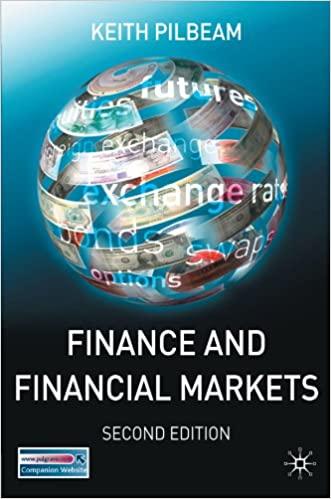Question
According to the U.S. Securities and Exchange Commission (SEC), Illegal insider trading refers generally to buying or selling a security, in breach of fiduciary duty
According to the U.S. Securities and Exchange Commission (SEC), Illegal insider trading refers generally to buying or selling a security, in breach of fiduciary duty or other relationship of trust and confidence, while in possession of material, nonpublic information about the security. Your textbook notes that "stockholders require compensation for the risk they face; the higher the risk, the greater the compensation" (196). Some argue that insider trading is illegal and that a select few people trade on material nonpublic information, which results in the perception that markets are unfair and these actions will discourage ordinary people from participating in markets. The other side of the coin argues that insider trading is difficult to prove and that there is an opportunity cost, since the government must divert resources from cases that merit attention (i.e. theft, violent assaults, murder, etc.), and it is not worth prosecuting.
1) Do you believe that insider trading (the purchase or sale of securities by someone with information that is material and not in the public realm) is good or bad for the markets?
2) Do you believe that high-ranking officials whether in government or the private sector should be required to file detailed financial disclosures in order to maintain the trust of investors?
Step by Step Solution
There are 3 Steps involved in it
Step: 1

Get Instant Access to Expert-Tailored Solutions
See step-by-step solutions with expert insights and AI powered tools for academic success
Step: 2

Step: 3

Ace Your Homework with AI
Get the answers you need in no time with our AI-driven, step-by-step assistance
Get Started


